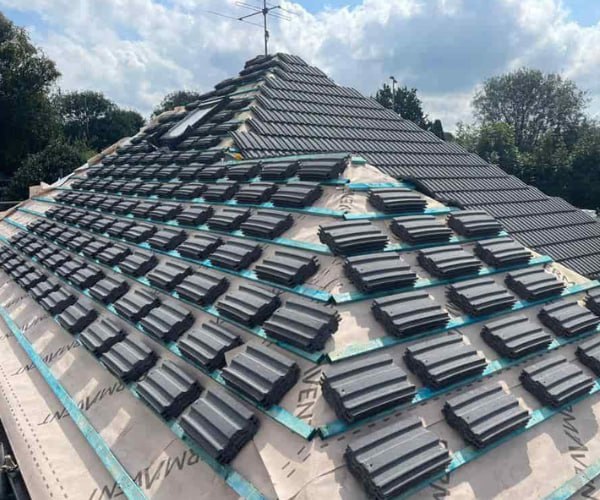15 Must-Know Facts About Lead Flashing Repairs
Introduction
Lead flashing might not be the first thing you notice on a roof, but it plays a critical role in keeping your home dry and protected. Whether installed around chimneys, valleys, roof joints or dormers, flashing is designed to create a waterproof seal that prevents leaks where two surfaces meet. But over time, even the most durable lead flashing can degrade, crack, or slip—leading to costly problems if not addressed early.
At SCG Roofing Earls Barton, we specialise in lead flashing repairs across Earls Barton and the wider Northamptonshire region, and we know exactly how important this often-overlooked component really is. Below, we’ve put together 15 essential facts every homeowner should know about lead flashing and its maintenance.
1. Lead Flashing Is a Key Defence Against Water Ingress
Flashing directs water away from vulnerable areas on your roof. Without it, moisture would easily seep into your home where roof materials meet walls or features.
2. It’s Found in Multiple Places
You’ll commonly see lead flashing around chimneys, roof valleys, skylights, dormers, wall abutments and even over window lintels on older buildings.
3. Lead Is Chosen for a Reason
Lead is highly malleable and weather-resistant, making it ideal for shaping into tight corners and folds while standing up to decades of rain, wind, and temperature changes.
4. Cracked Flashing = Future Leaks
Hairline cracks in lead flashing often go unnoticed until water makes its way inside. Catching these early prevents much larger repair bills.
5. Flashing Issues Often Mimic Other Problems
A ceiling stain may look like a roofing issue, but it could actually stem from failed flashing around a chimney or dormer. Accurate diagnosis is key.
6. Lead Flashing Can Last 50+ Years
Properly installed lead flashing can last half a century or more, but it still needs regular checks to ensure movement, corrosion or damage hasn’t compromised the seal.
7. Poor Installation is a Common Culprit
Many flashing problems are due to shortcuts during installation—wrong lap lengths, inadequate fixings, or incorrect sealants can all lead to early failure.
8. Flashing Movement Needs Space
Lead expands and contracts with temperature changes. Professional roofers leave the right allowances for this movement to avoid splits and buckling.
9. Repairs Often Involve More Than Just the Flashing
Water damage from flashing failure may affect roof timbers, insulation, or plaster inside the home—making early intervention critical.
10. Reusing Old Flashing is Risky
When repairing a roof, some contractors may attempt to reuse lead flashing to save time. However, aged or improperly handled lead may not provide a reliable seal.
11. Chimneys Are Especially Vulnerable
Chimney stacks are exposed on all sides, making flashing around them one of the most common points of failure if not properly maintained.
12. You Can Spot Flashing Problems from the Ground
Look for signs like lead peeling away, gaps between the lead and wall, or discolouration around joints. These are all early indicators of trouble.
13. Flashing Repairs Must Be Precise
Lead must be cut, folded, and secured with skill to prevent leaks. Small errors in overlap or fixings can compromise the whole repair.
14. Professional Repairs Save Money Long-Term
DIY patch jobs may hold up for a few months, but they rarely solve the root problem. Hiring an experienced roofer protects your investment and avoids repeat issues.
15. Maintenance Is Key to Longevity
Like all roofing components, flashing benefits from regular inspection. Checking leadwork every few years helps prevent costly surprises and keeps your roof watertight.
Conclusion
Lead flashing may not be the most glamorous part of your roof, but it’s one of the most important. When flashing fails, leaks and structural damage often follow—but with proper installation, routine maintenance and professional repairs, you can avoid these pitfalls entirely.
At SCG Roofing Earls Barton, we provide expert flashing repair and replacement services for homes throughout Northamptonshire. Whether you’re dealing with a persistent leak or planning routine roof maintenance, get in touch today and let us keep your roof in top condition—right down to the smallest detail.
Call us on: 01604 261 699
Click here to find out more about SCG Roofing Earls Barton
Click here to complete our contact form and see how we can help with your roofing needs.

